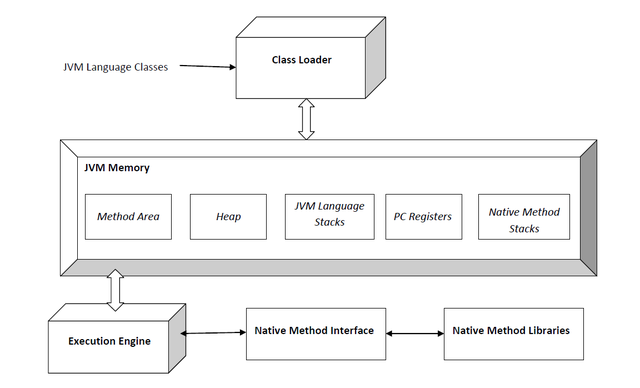What do you understand by Java Virtual Machine

The Java Virtual Machine (JVM) is a crucial component of the Java Runtime Environment (JRE) that enables Java applications to be platform-independent. Instead of compiling Java code directly into machine code for a specific operating system, the Java compiler translates Java source code into an intermediate form called bytecode. The JVM then executes this bytecode on any system that has a compatible Java Runtime Environment installed.
Key features and functions of the Java Virtual Machine include:
Platform Independence: Since the JVM executes bytecode rather than native machine code, Java applications can run on any device or operating system with a compatible JVM.
Memory Management: The JVM is responsible for managing memory during the execution of a Java program, including tasks such as garbage collection to reclaim unused memory.
Just-In-Time Compilation (JIT): The JVM includes a Just-In-Time compiler that translates bytecode into native machine code at runtime. This can significantly improve the performance of Java applications.
Security: The JVM provides a secure execution environment for Java applications by enforcing various security features, such as classloaders and bytecode verification, to prevent malicious activities.
ClassLoader: The ClassLoader is responsible for loading Java classes into the JVM. It loads classes dynamically as needed during the execution of a Java program.
Java Native Interface (JNI): The JVM supports JNI, which allows Java code to interact with applications and libraries written in other languages, such as C and C++.
Multi-threading Support: The JVM has built-in support for multi-threading, allowing Java applications to execute multiple threads concurrently.
The JVM acts as an abstraction layer between the Java application and the underlying hardware and operating system, providing the portability and versatility that are key characteristics of Java. This architecture enables developers to write code once and run it anywhere with a compatible JVM, simplifying the deployment of Java applications across diverse environments.
Thank you,